Kenya
The International Criminal Court’s Chief Prosecutor (ICC), Fatou Bensouda has blamed “witness interference” for the ‘termination’ of the charges against Kenya’s Deputy President, William Ruto.
William Ruto and his co-accused Joshua Sang, a broadcaster were being tried for fomenting the post-election violence of 2007 in the east African country. But the court on Tuesday dropped the charges against the two accused.
In a video statement, her first official reaction to the ruling, Fatou Bensouda said: “We regret that due to deliberate and concerted effort to derail this case through witness interference, the judges have been prevented from determining the guilt or innocence of the accused on the full merit of the case.”
For now, victims of #PEV in Kenya have been denied justice, says ICC Prosecutor https://t.co/dSfzGV7WTf via
— JFJustice (JFJustice) April 7, 2016YouTube
This development she noted has “denied the victims of 2007-2008 election violence in Kenya the justice they so deserve”.
Far from admitting that the prosecution failed to present a solid case against the accused persons, the ICC Prosecutor pointed out that “the Chamber endorsed the prosecution’s position that this case has been severely undermined by witness interference and politicization of the judicial process.”
She argued that the court took into consideration the fact that “other evidence may have been available to the prosecution had it been able to prosecute the case in a climate less hostile to the prosecution, its witnesses and the court in general.”
Since the two accused persons were not acquitted by the court, there is the possibility the prosecution could drag them back to the court in future under the same charges or under fresh charges if it manages to dig up some new evidence.
And the Chief Prosecutor gave the strongest hint yet that that was could happen.
“We are currently in the process of carefully assessing the trial chamber’s decision to determine the appropriate next step,” she said.
Fatou Bensouda bemoaned the “relentless campaign” in Kenya to prevent people from testifying in the case explaining that the success or failure of prosecutions at the ICC, depended on the willingness of witnesses to “come forward and tell their story in the courtroom.”
17 witnesses who had “agreed to testify against the accused” she said, “subsequently withdrew their cooperation with the court.” According to her, the witnesses were subjected to intimidation, social isolation and threats thus preventing them from testifying.
The ICC has had a hard time bringing Sudanese president Omar al-Bashir to trial over genocide in his country.
The opposition of the court’s operations by the African Union is not lost on Fatou Bensouda who said the trial had also been politicized.
The ICC took up the matter after the Kenyan government failed to set up a special tribunal in 2009 to try the issue of post-election violence.
Fatou Bensouda explained that her outfit took up the matter because it knew the victims could not get justice in Kenya.
Click below to watch the full statement
.embed-container { position: relative; padding-bottom: 56.25%; height: 0; overflow: hidden; max-width: 100%; } .embed-container iframe, .embed-container object, .embed-container embed { position: absolute; top: 0; left: 0; width: 100%; height: 100%; }




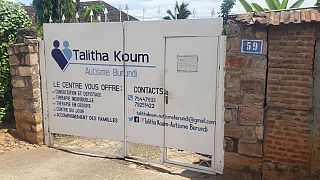

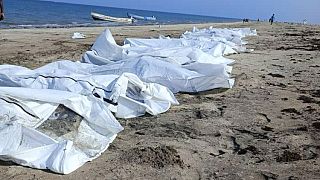
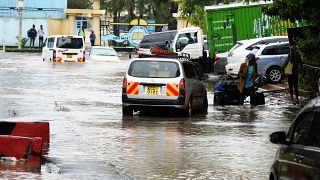
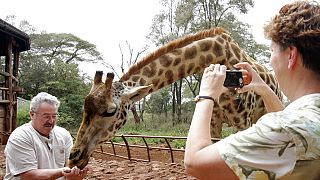


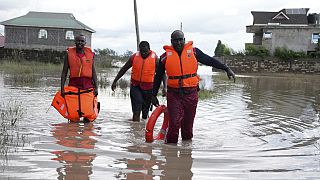

00:49
London Marathon: Women's-only world record, Kenyan double victory
00:57
London Marathon to honour late Kenyan athlete Kelvin Kiptum
01:02
Pics of the day: April 18, 2024
01:11
Kenya’s military chief dies in a helicopter crash, Nairobi declares three days of national mourning
01:00
Pics of the day: April 17, 2024
02:08
Devastating floods ravage parts of east Africa, displacing thousands